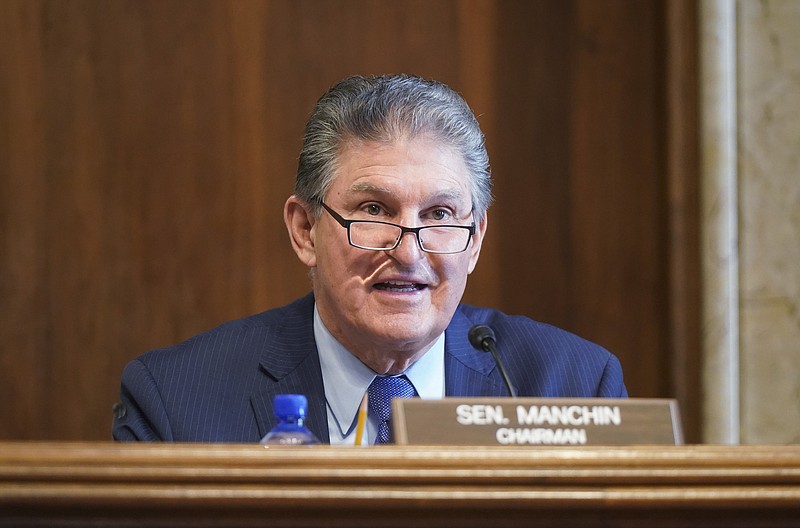Sen. Joe Manchin, the self-styled conservative Democrat from West Virginia, is driving progressives crazy - and he doesn't seem to mind.
Manchin says President Joe Biden's $1.9-trillion COVID relief bill is too big, and he wants to cut it. He says he strongly opposes a $15 federal minimum wage, one of Biden's top campaign promises. He announced last week that he won't vote to confirm Biden's nominee to head the Office of Management and Budget, Neera Tanden, because her campaign-year tweets struck him as too partisan. He hasn't decided whether to support Biden's choice for Interior secretary, Deb Haaland, because she has advocated tough regulation of coal and natural gas, two important industries in West Virginia.
His refusal to back Tanden, an Indian American, and Haaland, a Native American, drew fury from progressives, who pointed out that both are women of color. But the Senate's Democratic leaders are staying out of the fray, giving Manchin a great deal of deference for a simple, practical reason: He's their 50th vote.
Without Manchin, they don't have a working majority. Even with Manchin on their side, they still need Vice President Kamala Harris to break tie votes.
Asked if his party has a Joe Manchin problem, Senate Democratic Whip Richard J. Durbin of Illinois said: "We have a 50-50 problem."
Manchin is an unusual character in the increasingly polarized Senate: a Democrat who voted in favor of Trump's position on legislation more than half the time, and who seeks to split almost every issue down the middle.
He's a throwback to the age when Southern Democrats like his predecessor Robert C. Byrd became power brokers precisely because their votes were unpredictable.
He has urged Biden to build bipartisan coalitions with Republicans, and offered himself as a mediator. He's disappointed that Biden, in pursuit of quick passage for his COVID-19 relief bill, has largely ignored his advice.
It's hard to avoid the impression that Manchin enjoys being the man in the middle - the senator both sides want to woo.
But his split-the-difference positions also reflect who he is and where he's from: a culturally conservative, anti-abortion, pro-business Democrat from a desperately poor coal state.
His greatest passion in the Senate has nothing to do with ideology; it's making sure West Virginia gets as much federal spending as possible.
In pursuit of that goal, he has been willing to evolve. Long a dogged defender of coal mining, he has seemingly come to accept that coal jobs will never come back and now focuses on attracting clean energy jobs to his state.
His success is what has enabled him to keep his Senate seat for 10 years, during which West Virginia, like other rural states, has turned solidly Republican.
And that's why Joe Manchin isn't the Democrats' problem; he's part of their solution.
He's an example of how Democrats can win Senate seats in states where they need to begin winning again: in rural states that, thanks to the Constitution, hold a share of seats in the Senate wildly disproportionate to their populations.
The 25 most rural states elect 50 of the Senate's 100 members - and 40 of those 50 are currently Republicans.
To solve their 50-50 problem in the Senate, Democrats need to compete more effectively in states such as Iowa, Montana and Alaska, places they hoped to win in 2020 but lost.
That means recruiting and supporting candidates attuned to the problems of farmers, ranchers and miners - rural populists, not urban progressives.
What they need, like it or not, is more Joe Manchins.
The Los Angeles Times
